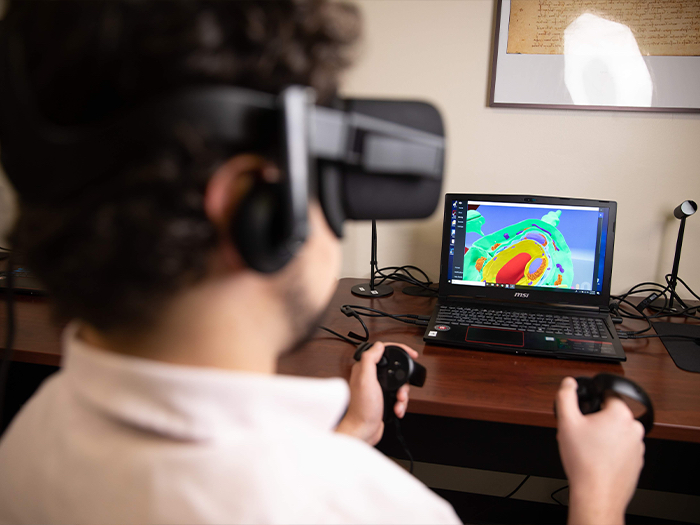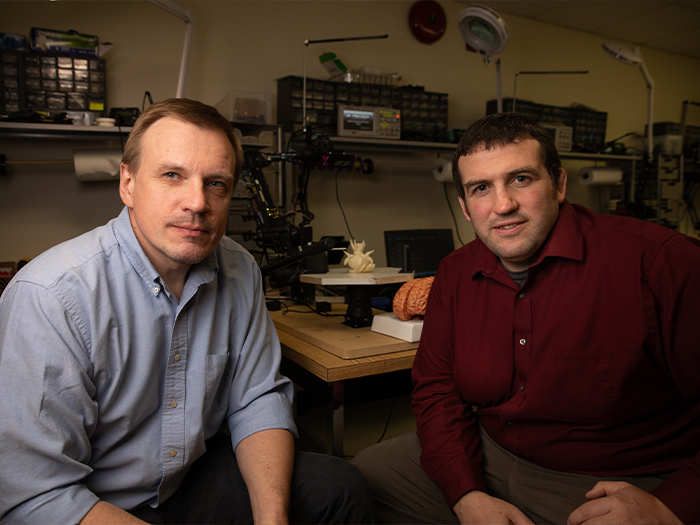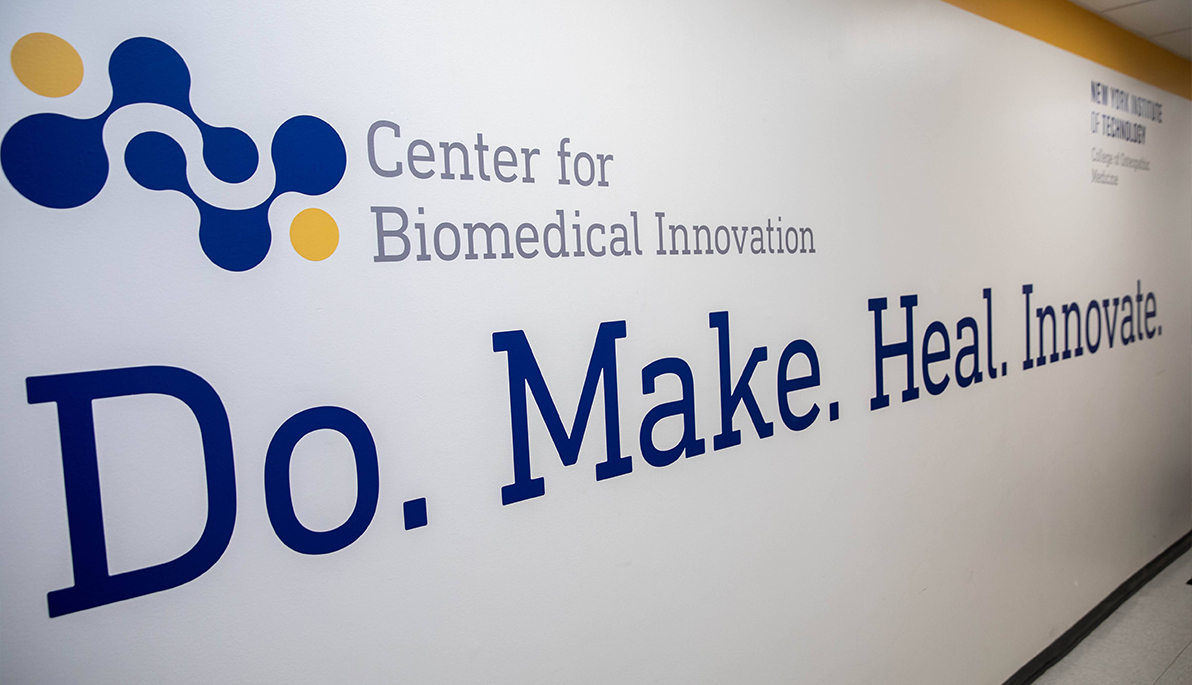News
NYITCOM Opens Center for Biomedical Innovation
January 17, 2020
Kicking off 2020, a year marking the beginning of a new decade and a new era of innovative medicine, NYIT College of Osteopathic Medicine (NYITCOM) welcomed its Center for Biomedical Innovation with a grand opening on January 15.
New York Tech faculty, staff, and students gathered at NYIT de Seversky Mansion, where Jerry Balentine, D.O., dean of NYITCOM and vice president for Medical Affairs and Health Sciences, introduced the center as a means for state-of-the-art collaboration and education. The center, which is located in room 115, will use state-of-the-art equipment such as artificial intelligence, virtual reality, robotics, 3-D technologies, and imaging to develop and apply original technologies for biomedical discovery, diagnostics, and treatment.

A student tests a biomedical virtual reality gaming system in the Center for Biomedical Innovation.
“By taking a multidisciplinary approach and fusing a synergistic mix of engineering, medicine, and the arts, the Center for Biomedical Innovation will drive new protocols of how bioscience is done,” said Balentine. “It will allow us to attract and retain the most talented researchers and students while simultaneously elevating standards of discovery, creation, and patient care.”
The ultramodern research and development laboratory is the creation of Aleksandr Vasilyev, M.D., Ph.D., associate professor of biomedical sciences and director of the center. At the grand opening, Vasilyev opted for a futuristic video of a robotic arm cutting a simulated ribbon over the traditional “big scissor” ribbon-cutting ceremony. Vasilyev is no stranger to out-of-the-box thinking and has been combining gaming technology with biomedical innovation for several years. In 2018, he worked with NYITCOM students to develop Nephro360, a teaching tool that uses virtual reality (VR) to help students study the kidney. That year, Nephro360 went on to win the American Society of Nephrology (ASN) Innovations in Kidney Education Contest, further proving that gaming technology had the potential to be used for medical breakthroughs.

Aleksandr Vasilyev, left, and Randy Stout.
Under Vasilyev, the Center for Biomedical Innovation will draw upon the expertise of NYITCOM faculty to provide a resource for collaboration and education. Research and development will be focused into three key groups:
- The artificial intelligence (AI) and robotics group will focus on general and specialized biomedical AI systems and biomedical robotics, and serve as the center’s core by developing new and essential technologies.
- The imaging, visualization, and modeling group led by Randy Stout, Ph.D., assistant professor at NYITCOM, will focus on imaging biological processes and systems by using 3-D technologies, virtual reality simulations, and modeling.
- The biomedical innovations group will focus on advanced non-invasive diagnostics, drug discovery, and knowledge mining. The group will also work to develop novel therapies like regenerative technologies, a field that includes gene therapies, cell therapies, and tissue-engineered products to boost, repair, or regenerate organs.
In addition to Vasilyev and Stout, who also manages the New York Tech VR Interest Group, NYITCOM’s Ying-Tao Zhao, Ph.D., assistant professor of biomedical sciences, will use the lab to further his computational biology projects, and Gonzalo Otazu, Ph.D., assistant professor of biomedical sciences, will use the lab to develop new machine learning algorithms based on the principles of brain organization. Michael Granatosky, Ph.D., assistant professor of anatomy, also plans to partner with the center for his biomechanics research. At the grand opening, he debuted a robot built to simulate the walking patterns of the blue-tongued skink, an Australian lizard commonly used as a model for early tetrapod (four-footed animal) locomotion.


_Thumb.jpg)


